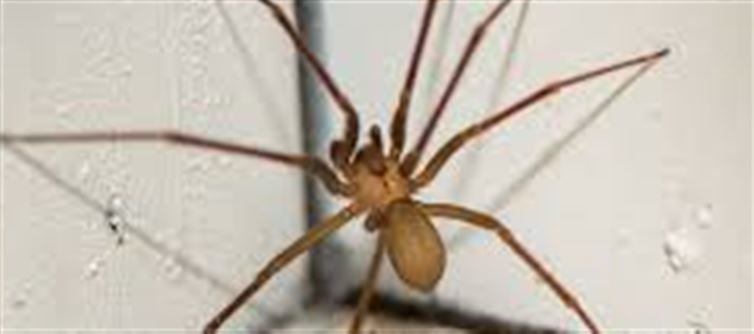
Spider bites are a common nuisance, especially during the rainy season when insects tend to be more active. While most spider bites are harmless and cause only mild discomfort, some can lead to irritation, swelling, and in rare cases, more serious reactions. If you've been bitten by a spider, here are some home remedies to help alleviate the discomfort and speed up recovery.
1. Clean the Bite Area with Soap and Water
The first step after a spider bite is to clean the area thoroughly with mild soap and water. This helps remove any dirt or bacteria that may have been transferred from the spider or the surrounding environment, reducing the risk of infection.
2. Apply a Cold Compress
To reduce swelling and pain, apply a cold compress or an ice pack wrapped in a cloth to the bite area for about 10-15 minutes at a time. This will help numb the area and decrease any inflammation.
· How to do it: Take a clean cloth, wrap some ice cubes in it, and place it on the bite site. Avoid placing ice directly on the skin to prevent frostbite.
3. aloe vera Gel for Soothing Relief
Aloe vera is well-known for its anti-inflammatory and soothing properties, making it an excellent remedy for spider bites. It can help cool the skin, reduce redness, and relieve itching.
· How to use it: Apply fresh aloe vera gel directly from the plant or use a store-bought gel to the affected area. Leave it on for about 30 minutes before washing it off.
4. Baking Soda Paste to Reduce Itching
Baking soda is another effective remedy for spider bites, especially if the bite causes significant itching. It neutralizes the acids in the skin, helping to soothe irritation.
· How to use it: Mix a tablespoon of baking soda with a little water to form a thick paste. Apply it to the bite area and let it sit for 10-15 minutes before rinsing it off with lukewarm water.
5. Honey to Reduce Inflammation
Honey has natural antibacterial and anti-inflammatory properties, making it a great choice for treating spider bites. It can help speed up the healing process and reduce any swelling.
· How to use it: Apply a small amount of honey to the bite area and leave it on for about 30 minutes. Rinse off with lukewarm water afterward.
6. Tea Tree oil for Infection Prevention
Tea tree oil is a powerful antiseptic that can help prevent infection if you've been bitten by a spider. It also has anti-inflammatory properties that can help reduce swelling and pain.
· How to use it: Dilute tea tree oil with a carrier oil (such as coconut or olive oil) in a 1:1 ratio. Apply a few drops to the bite area and gently massage it in. Do a patch test beforehand to ensure you don’t have a sensitivity or allergic reaction.
7. apple Cider Vinegar for Pain and Swelling
Apple cider vinegar is another effective remedy for spider bites due to its alkaline nature, which can help neutralize the acidic venom from the bite. It also helps in soothing pain and reducing swelling.
· How to use it: Soak a cotton ball in diluted apple cider vinegar (one part vinegar, one part water) and apply it to the affected area for 10-15 minutes.
8. Over-the-Counter Hydrocortisone Cream for Itching
If the bite causes intense itching, an over-the-counter hydrocortisone cream can provide quick relief. It helps reduce inflammation and calm the irritation.
· How to use it: Apply a thin layer of hydrocortisone cream to the bite area 2-3 times a day, but avoid using it for long periods without consulting a healthcare provider.
9. Lavender oil to Soothe Pain
Lavender oil is known for its calming and pain-relieving properties, making it a great remedy for spider bites that are causing pain and discomfort.
· How to use it: Dilute lavender oil with a carrier oil and apply it to the affected area. It can help reduce pain and swelling and promote faster healing.
10. Witch Hazel to Reduce Swelling
Witch hazel has natural astringent properties that help tighten the skin and reduce swelling and inflammation. It can also soothe irritation and pain from the bite.
· How to use it: Apply witch hazel directly to the bite area using a cotton ball. Leave it on for 10-15 minutes and then rinse with cool water.
When to See a Doctor
While most spider bites are harmless, some may cause severe reactions or complications. It's important to seek medical attention if you notice any of the following:
· Severe pain that worsens over time
· Extensive swelling or redness
· Difficulty breathing or dizziness (could be signs of an allergic reaction)
· The bite becomes increasingly warm or pus-filled, indicating infection
· You were bitten by a venomous spider (e.g., black widow or brown recluse)
Final Thoughts
Spider bites are usually minor irritations that can be treated at home with simple remedies like cold compresses, aloe vera, and baking soda. However, it’s crucial to monitor the bite for signs of complications, and don’t hesitate to consult a healthcare professional if you’re concerned.
Disclaimer:
The views and opinions expressed in this article are those of the author and do not necessarily reflect the official policy or position of any agency, organization, employer, or company. All information provided is for general informational purposes only. While every effort has been made to ensure accuracy, we make no representations or warranties of any kind, express or implied, about the completeness, reliability, or suitability of the information contained herein. Readers are advised to verify facts and seek professional advice where necessary. Any reliance placed on such information is strictly at the reader’s own risk..jpg)




 click and follow Indiaherald WhatsApp channel
click and follow Indiaherald WhatsApp channel